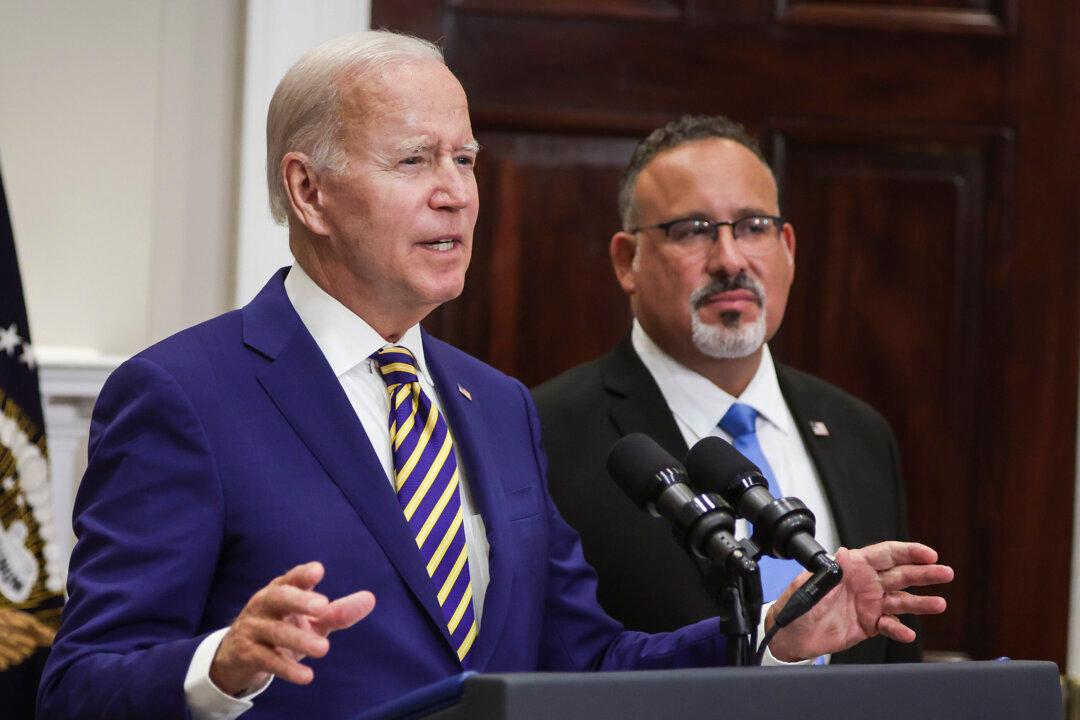Secretary of Education Miguel Cardona revealed during a recent hearing that the Biden administration is preparing to restart the payment of federal student loan debt that was paused amid the COVID-19 pandemic.
During a May 11 hearing of the Senate Committee on Appropriations, Sen. Katie Britt (R-Ala.) cited remarks by White House press secretary Karine Jean-Pierre who said, regarding the debt ceiling, that “if you buy a car, you are expected to pay the monthly payments. If you buy a home, you are expected to pay the mortgage every month. That is the expectation.”





